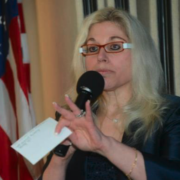Airline passenger advocates hail landmark junk fee rules
April 25, 2024
Media contact: National Consumers League – Melody Merin, melodym@nclnet.org, 202-207-2831
Washington, DC – Airline passenger rights advocacy organizations today hailed new rules announced by the U.S. Department of Transportation (DOT) that will make it easier to obtain refunds for cancelled flights and ancillary services that aren’t provided. The groups also applauded the finalization of regulations that will make it easier for flyers to do apples-to-apples comparisons of flight costs. The groups, which supported passage of these new protections for more than four years, urged Congress to follow suit and include these protections in the forthcoming FAA reauthorization bill.
“Too often, airlines promise one thing and fail to deliver it,” said National Consumers League CEO Sally Greenberg. “The law says that when this occurs, consumers should get a refund. Far too often, the airlines make the process of getting your money back unnecessarily difficult. Today’s rules promise to bring sanity to the refund process. In addition, the new rules on fee transparency will make it easier for consumers to get an accurate price for their flights upfront. This is a far better solution making consumers wait until the end of the ticket buying process to learn what their true cost will be.”
“It has become painfully clear that the status quo is no longer working in air travel, and we are glad to see Secretary Buttigieg acknowledge that consumers deserve better,” said Erin Witte, director of consumer protection at Consumer Federation of America. “These rules will bring transparency to opaque ticket pricing, and they will put the responsibility for refunds where it belongs: on airlines, not consumers.”
“It’s a shame that it takes actual rules to get airlines to do the right thing and take better care of their passengers,” said Teresa Murray, Consumer Watchdog Director at U.S. Public Interest Research Group. “It’s important to remember that most Americans fly only once every 12 to 18 months. These rules will especially help those travelers who aren’t as familiar with their rights.”
“We applaud the DOT’s move to require refunds for consumers —by default—when flights are cancelled or ‘significantly’ delayed,” said Ruth Susswein, Consumer Action’s Director of Consumer Protection. “This clear directive is sorely needed and a significant improvement for airline passengers.”
“For years, domestic and foreign airlines both large and small have made it as hard as possible to give passengers well deserved refunds for disruptions they’ve caused or services they’ve failed to provide,” said William J. McGee, Senior Fellow for Aviation and Travel at the American Economic Liberties Project. “The DOT’s new rule is a watershed moment for passenger protection in the airline industry, making it easy and accessible for consumers to get relief when Too-Big-To-Care airlines run roughshod over them. This news follows a positive sea change in the DOT’s enforcement activity under the Biden administration, including supporting the DOJ’s successful JetBlue-Spirit merger challenge, a historic enforcement action against Southwest, and new efforts to empower state attorneys general to address consumer complaints. There’s more work to be done, but the DOT is showing that it’s getting serious about taking on corporate power across the airline industry—and we’re thrilled to see that.”
The new rules come as Congress closes in on approval of legislation reauthorizing the Federal Aviation Administration. The passenger rights groups are calling on leaders in the House and Senate to ensure that additional protections are put in place to ensure that a future DOT does not roll back these hard-won consumer protections.
###
About the National Consumers League (NCL)
The National Consumers League, founded in 1899, is America’s pioneer consumer organization. Our mission is to protect and promote social and economic justice for consumers and workers in the United States and abroad. For more information, visit nclnet.org.














